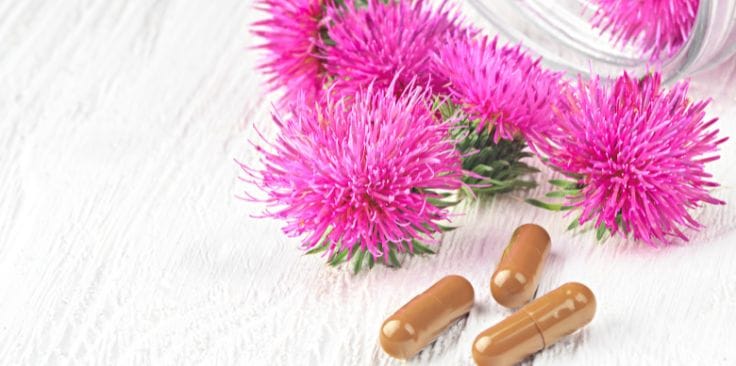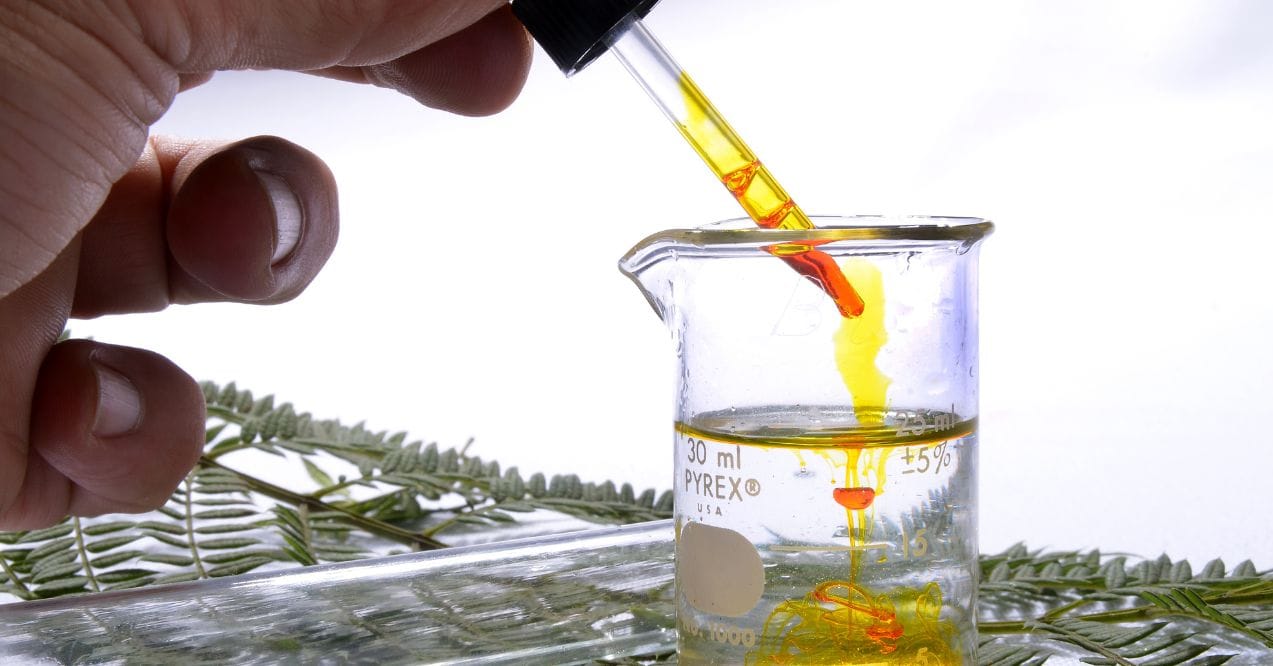Can You Take Turmeric with Milk Thistle?
Medically reviewed by our experts


Can you take turmeric with milk thistle? The growing interest in natural approaches to maintaining well-being has led to increased attention on combining beneficial herbs and spices. Both turmeric and milk thistle offer unique properties that support various aspects of health, particularly liver function.
Key Article Findings
- Turmeric and milk thistle each provide distinct benefits for liver health
- The combination may offer complementary support for overall wellness
- Proper dosage and timing matter when taking these supplements together
What Is Turmeric and How Does It Benefit Health?
Turmeric contains curcumin, which gives this golden spice its characteristic color and beneficial properties. Research indicates that curcumin supports the body’s natural inflammatory response and provides antioxidant effects.
For centuries, traditional practices have incorporated turmeric for digestive comfort and joint mobility. Modern scientific investigation continues to explore how turmeric interacts with various bodily systems, including its role in supporting liver function.
The natural compounds in turmeric work through multiple pathways in the body. They support the body’s detoxification processes and help maintain cellular health in the liver. Studies suggest these compounds may help protect liver cells from environmental stressors.
What Is Milk Thistle and Its Role in Liver Health?
Milk thistle contains silymarin, a compound that has drawn significant scientific interest. This active component stands out for its ability to support liver health through various mechanisms. Research points to silymarin’s capacity to maintain liver cell integrity and support the organ’s natural regenerative processes.
Traditional wellness practices have long valued milk thistle for supporting liver function. Modern research continues to investigate how this herb supports the body’s natural detoxification processes and maintains healthy liver enzyme levels.
The scientific community has conducted numerous studies examining milk thistle’s protective properties. These investigations suggest that silymarin helps maintain liver health when exposed to various environmental challenges.
The Benefits of Taking Turmeric and Milk Thistle Together
So, can you take turmeric with milk thistle? The combination of these two natural substances may offer complementary support for overall wellness. Their individual properties work through different mechanisms, potentially creating a more comprehensive approach to maintaining health.
The antioxidant properties of both substances work in distinct ways. While turmeric supports the body’s natural inflammatory response, milk thistle focuses on maintaining liver cell integrity. This dual action may provide broader support for the body’s natural processes.
Lisa King, RPh, a respected pharmacist with extensive experience in natural supplements, notes that combining these botanicals with other supportive ingredients can provide broader benefits. For instance, Liver Renew offers a comprehensive blend of nine natural ingredients, including turmeric and milk thistle, along with beneficial compounds like artichoke, dandelion, and beetroot. This thoughtful natural ingredient combination may support your natural vitality and overall well-being.
Additionally, both substances support digestive comfort and overall well-being. Their combined properties may help maintain healthy oxidative stress levels in the body while supporting natural detoxification processes. When part of a broader supplement formula, these ingredients work synergistically with other natural compounds to support optimal function.
Are There Any Risks or Considerations When Combining These Two?
While both substances have long histories of traditional use, certain considerations merit attention. Some individuals may experience sensitivity to either substance, making it important to start with small amounts and observe how your body responds.
Both substances can influence various bodily processes. If you take any medications, it’s advisable to discuss this combination with a qualified healthcare professional. This becomes particularly important if you take medications that interact with liver enzymes.
Certain groups should exercise additional caution. These include:
- Those with existing liver conditions
- Individuals taking blood-thinning medications
- People preparing for surgical procedures
- Those with specific allergies to similar botanical substances
A qualified healthcare professional can provide personalized guidance based on your individual health situation and any medications you currently take.
How Much Turmeric and Milk Thistle Should You Take?
The appropriate amount of these substances varies based on individual factors and the specific form being used.
For turmeric supplements containing concentrated curcumin, typical amounts range from 500-2,000 mg daily.
Milk thistle supplements often provide up to400 mg of silymarin compounds per day.
When combining these substances, starting with lower amounts allows you to observe how your body responds. Some people choose to take them at different times of the day to optimize absorption. Others find taking them together with a meal works well.
A qualified healthcare professional can help determine the most appropriate amounts based on your individual needs and health goals. They can also advise on the best timing and form of supplementation for your situation.
Other Lifestyle Factors That Support Liver Health
Supporting liver health involves more than supplementation alone. A balanced eating plan rich in colorful fruits and vegetables provides natural compounds that support overall health. Including a variety of whole grains and leafy greens adds beneficial fiber to your daily nutrition.
Regular physical activity supports multiple aspects of health, including maintaining healthy weight levels. Simple activities like walking, swimming, or gardening can make a significant difference when done consistently.
Limiting exposure to environmental stressors helps reduce the load on your body’s natural processes. This includes being mindful of household products, air quality, and water sources.
Conclusion
The question “can you take turmeric with milk thistle?” leads us to explore how these traditional botanical substances may work together to support health. While research suggests potential benefits from their complementary properties, individual responses can vary.
A thoughtful approach that includes proper supplementation, balanced nutrition, and regular physical activity provides the foundation for maintaining overall well-being. Working with qualified healthcare professionals helps ensure the most appropriate choices for your individual situation.
Either approach works well. Some people prefer taking them with different meals to optimize absorption. Starting with one supplement before adding another allows you to observe how your body responds.
Consider taking these supplements with meals containing healthy fats. A balanced eating plan that includes leafy greens, whole grains, and colorful vegetables supports their natural properties.
Individual experiences vary. Consistent use over several weeks, combined with a balanced lifestyle, allows time for these natural substances to support your body’s processes.
Turmeric: Usefulness and safety. (n.d.). NCCIH.
Hewlings, S., & Kalman, D. (2017). Curcumin: A review of its Effects on Human health. Foods, 6(10), 92.
Peng, Y., Et Al. (2021). Anti-Inflammatory effects of curcumin in the inflammatory diseases: Status, limitations and countermeasures. Drug Design Development and Therapy, Volume 15, 4503–4525.
Farzaei, M. H., Et Al.(2018). Curcumin in liver Diseases: A systematic review of the cellular mechanisms of oxidative stress and clinical perspective. Nutrients, 10(7), 855.
Milk Thistle: Usefulness and safety. (n.d.). NCCIH.
Karimi, G., Et Al. (2011). “Silymarin”, a promising pharmacological agent for treatment of diseases.
Gillessen, A., & Schmidt, H. H. (2020). Silymarin as supportive Treatment in liver Diseases: A Narrative review. Advances in Therapy, 37(4), 1279–1301.
Latief, U., & Ahmad, R. (2018). Herbal remedies for liver fibrosis: A review on the mode of action of fifty herbs. Journal of Traditional and Complementary Medicine, 8(3), 352–360.
Rdn, M. M. M. (2023). Turmeric dosage: How much should you take per day? Healthline.
Milk Thistle Uses, Benefits & Dosage Herbal Database. (n.d.). Drugs.com.
Popular Articles
Advertisement. This site offers health, wellness, fitness and nutritional information and is designed for educational purposes only. You should not rely on this information as a substitute for, nor does it replace, professional medical advice, diagnosis, or treatment. If you have any concerns or questions about your health, you should always consult with a physician or other health-care professional. Do not disregard, avoid or delay obtaining medical or health related advice from your health-care professional because of something you may have read on this site. The use of any information provided on this site is solely at your own risk.













